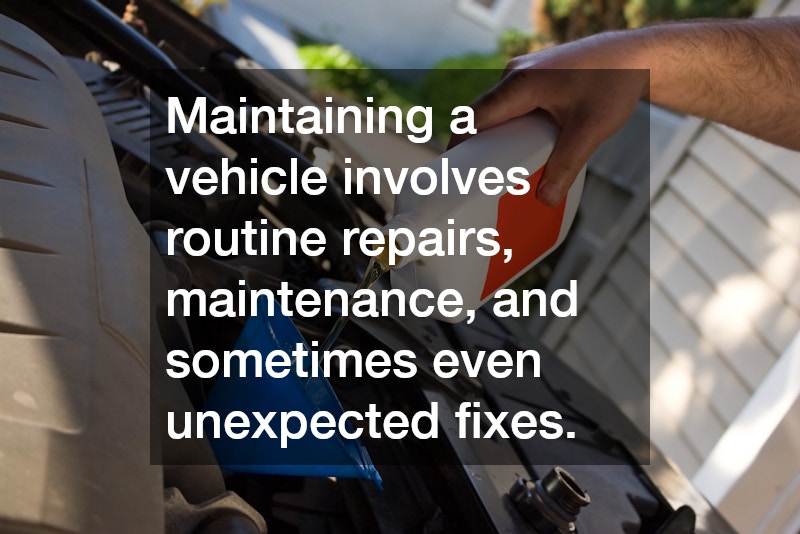Maintaining a vehicle involves routine repairs, maintenance, and sometimes even unexpected fixes. When these needs arise, drivers are often faced with a key decision: should they take their vehicle to an auto shop or to the dealership? Both options have their pros and cons, and understanding the difference between the two can help you make an informed decision based on the type of work your car requires, your budget, and your overall preferences.
When to Use Auto Shops
1. Non-Warranty Repairs and Routine Maintenance
For most routine services, such as oil changes, tire rotations, brake inspections, and battery replacements, auto shops can be an excellent option. These services are generally not specific to any particular make or model, which means independent mechanics at auto shops can handle them with ease.
Since auto shops usually have lower overhead costs than dealerships, they may offer more affordable pricing, making them a good choice for everyday maintenance.
2. Cost-Effectiveness
One of the most significant advantages of taking your vehicle to an auto shop is the potential for cost savings. Auto shops tend to have lower labor rates and generally do not have the same level of overhead that dealerships face. While the dealership may have higher prices due to their brand association, auto shops are often able to provide similar or even superior services at a fraction of the cost. For common repairs or simple diagnostic work, an auto shop can be a budget-friendly alternative without compromising on quality.
3. Personalized Service
Another reason to choose an auto shop is the level of customer service that many independent shops offer. Smaller auto shops are often owned and operated by local mechanics who pride themselves on building relationships with their customers. This can lead to a more personalized experience, where you may feel more comfortable discussing your vehicle’s needs. You’re likely to get a more tailored service, and mechanics may be more inclined to go the extra mile for loyal customers. In many cases, the technician working on your car will be the same person who communicates with you, providing a more direct and transparent interaction.
4. Convenience
For some drivers, convenience can be a major factor. Auto shops are more likely to be located in residential neighborhoods or areas that are easier to access compared to a dealership, which is often located farther away or in a more commercial area. Furthermore, many auto shops offer quicker turnaround times, especially for routine maintenance. Dealerships, due to their larger customer base and reliance on manufacturer-specific parts, may take longer to complete repairs or maintenance.
When to Use Dealerships
1. Warranty Coverage and Manufacturer-Specific Repairs
If your vehicle is still under warranty, the dealership is often the best choice for service. Most manufacturers require that you bring your car to an authorized dealership for repairs if you want to maintain your warranty coverage. Failing to do so could void your warranty, leaving you responsible for expensive repairs down the line. Dealerships have direct access to the manufacturer’s resources, including factory parts, technical bulletins, and updates. This makes them the ideal choice for dealing with warranty claims or repairs that require specialized knowledge or parts.
2. Specialized Knowledge for Your Make and Model
Dealerships often have technicians who are specifically trained to handle the unique needs of particular vehicle brands. Whether it’s a luxury car or a specific model with complex technology, dealerships have the tools and expertise to provide the most accurate diagnostics and repairs. They also have access to the latest software updates and repair guidelines straight from the manufacturer, which can be crucial for certain models that require very specific handling. If your vehicle has a complicated or rare issue, a dealership’s specialized technicians might be the better option to ensure the job is done right.
3. Advanced Diagnostic Equipment and Tools
Dealerships typically have the most up-to-date diagnostic equipment and tools, which are often specific to a particular brand or model of vehicle. If you’re experiencing issues that require precise diagnostics, or if you’re dealing with complex electrical or computer-based problems, a dealership might be the best choice. They have direct access to manufacturer-specific diagnostic software, which can be necessary for identifying and fixing certain problems that independent auto shops may not have the equipment to address.
4. High-Quality OEM Parts
Dealerships are known for using original equipment manufacturer (OEM) parts, which are parts specifically made for your vehicle’s brand and model. While auto shops may use aftermarket parts, which are often just as good but may not be brand-specific, OEM parts from a dealership are guaranteed to meet the exact specifications set by the manufacturer. This can be especially important if you’re dealing with critical components like engine parts, transmissions, or electrical systems. Although OEM parts tend to be more expensive, their durability and precise fit can make them worth the investment, particularly for major repairs.
Choosing Between Auto Shops and Dealerships
Understanding the pros and cons of both can help you make the best decision for your vehicle and your wallet. In the end, whether you choose an auto shop or a dealership, the most important factor is ensuring that your vehicle receives quality service and care.
.

